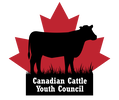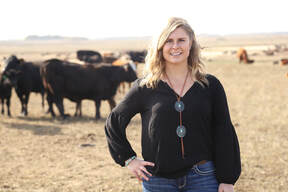|
We had to opportunity to join the Canadian Cattlemen’s Association’s (CCA) Domestic Agriculture Policy and Regulations Committee meeting in October, where we heard a presentation by Steve Funk of MNP. It was largely regarding the Business Risk Management (BRM) program known as AgriStability, and the inequitable treatment caused by Reference Margin Limiting (RML). The committee was able to learn about the modeling work done for the Beef Farmers of Ontario (BFO), New Brunswick Cattle Producers and CCA. The major takeaways were that intensive livestock operations (feedlots) required smaller drops in revenue to trigger AgriStability payouts compared to cow-calf producers. Overall, the committee decided to lobby for the removal of RMLs to make the program more effective for producers.
The Domestic Ag Committee held their 2021 AGM meeting on Thursday, March 18. The meeting was led by Co-Chairs, Charlie Christie from Alberta and Rob Lipsett of Ontario with over 30 people in attendance. The meeting began with a Business Risk Management (BRM) presentation led by Scott Pellow and Francesco Del Bianco with Agriculture and Agri-food Canada, where Set-Aside programs and AgriStability reform was discussed. The committee discussed in detail the mechanics of AgriRecovery and the Western Livestock Price Insurance Program (WLPIP), which was rebranded earlier this year to be named “Livestock Price Insurance”. The discussion then continued with Canfax representative Brenna Grant presenting on analysis that has taken place over the last year to look at expanding a livestock price insurance program into the Maritime provinces. Amy Higgins from the Maritime Beef Council spoke in greater detail about the steps being taken at the provincial level to establish a pilot program in the region. Young Cattlemen’s Council delegates were able to present to the committee on a Capital Gains Deferral Fund project. In 2015, the Beef Farmers of Ontario conducted a study with MNP to address the issues of the cost of land for young producers and the increasing number of farmers retiring. The idea of a capital gains tax deferral fund was proposed to allow farmers to deposit all, or a portion, of the proceeds from the sale of their land at retirement and receive a tax deferral on the capital gains. The fund would then be used to support beginning farmers as a pool of capital to acquire farmland. The fund would be set-up to provide favourable terms to beginning farmers compared to other financial institutions. It would also act as an investment instrument for farmers that contribute the proceeds of their land sales as they would receive a return from the interest paid by beginning farmers on the loans granted by the fund. The fund would be open to all farmers who sell their land regardless of structure, including individuals, corporations, partnerships or trusts. As young farmers, one of our biggest obstacles is the cost of land. Particularly in provinces where we are competing with land regulations and other large industries with a finite amount of resources. This study was conducted specifically in Ontario, but it is our hope at YCC to see this become a National objective where every cattle producer in Canada will have the opportunity to be successful when starting or growing their operation, and receive tax benefits when they retire and sell their land. It was our “ask” as a Council that the committee move to allocate staff and conduct an assessment on the potential for a National Capital Gains Tax Deferral Fund. We are pleased to report that the committee has decided to move forward with further investigating this initiative. It is worth noting that this proposed Capital Gains Deferral Fund may not be the exact answer to addressing the issue of accessing capital for young producers, but we believe that it will be a stepping stone in helping us address this ongoing issue. The committee also spoke on the effects of COVID-19 on agricultural labour. Not surprising, it appears that operations that utilize Temporary Agricultural Foreign Workers experienced significant challenges over the last year. It is a positive to note however that despite the virus, the demand for beef has continued to remain strong. The committee finished their meeting with a provincial roundtable discussion, which provided an opportunity for provincial delegates to discuss their regional issues with the rest of the committee. Some of the issues brought forward included water storage and licensing, price insurance, government funding for agriculture programs, Next Agricultural Policy Framework priorities and crown land management to name a few. The week following the Domestic Ag Committee AGM meeting, the CCA was pleased to see the Federal, Provincial and Territorial Agriculture Ministers agree to remove the Reference Margin Limit under AgriStability. Removing the reference margin limit will go a long way in making AgriStability more predictable and equitable for beef producers. CCA will continue to advocate for an increased compensation rate within the program from 70 per cent to 80 per cent that was included in the original proposal tabled by Federal Ag Minister, Marie Claude-Bibeau. We look forward to keeping the membership updated on the future meetings and activities of the Domestic Ag Committee.
0 Comments
The Canadian Cattlemen’s Association (CCA) Environment Committee meeting was held virtually during the Annual General Meeting March 15, 2021. The meeting was welcomed by the Committee Chair Duane Thompson with highlights, announcements and upcoming projects.
The meeting began with the first speaker, Frank Annau, Director of Environment and Science Policy with the Canadian Federation of Agriculture. Annau gave an update on Bill C-206 and fuel exemptions under the carbon tax. After a difficult year for many farmers due to the wet harvest season in 2019, the use of grain dryers was in high demand. The proposed legislation is to have an exemption for propane and natural gas as farm fuel under the Federal Carbon Tax scheme as the burden lead to significant cost impact to farmers. The Liberals have noted the Bill may not provide the intended relief for grain drying, as grain drying is not considered eligible farm machinery under the Pollution Pricing Act. The Canadian Federation of Agriculture (CFA) is recommending that the Bill must cover exemptions not only for grain drying but also for machinery used for livestock heating, cooling and irrigation. Scott Ross, Assistant Executive Director with the CFA gave an update on the Agriculture Carbon Alliance. The Agriculture Carbon Alliance is a collaboration of national farm organizations representing major agricultural commodities. The goal of the alliance is to work together to ensure on-farm profitability, safeguard global and domestic competitiveness, and recognize farmers as sustainable stewards of the land. The alliance largely focuses on carbon pricing and the immense economic impact to agriculture. The information sharing, bringing all sectors up to speed, avoiding duplication and coming forward will support sound carbon pricing policy and related legislation. Lauren Martin, CCA Government and Food Industry Relations Manager, gave an update on the UN Food Systems Summit (UNFSS). Guided by five Action Tracks, the Summit aims to bring together stakeholders to advance changes to the world's food systems that will help achieve the Sustainable Development Goals (SDGs) by 2030. Unfortunately, there is concern the Summit may become a stage for anti-red meat sentiments and reports. CCA is preparing ahead of the Summit as it is important that the beef sector has the opportunity to effectively share the industry's perspective related to advancing the SDGs while incorporating livestock and meat in global food systems. The CCA will be holding a series of independent dialogues for which a summary report will be sent to the UNFSS for inclusion in the proceedings. Lastly, the meeting wrapped up with Kristine Tapley, an Agrologist with Ducks Unlimited sharing their new website launch. The outstanding website is public driven and a helpful communication and resource tool. |
Search by typing & pressing enter




 RSS Feed
RSS Feed
